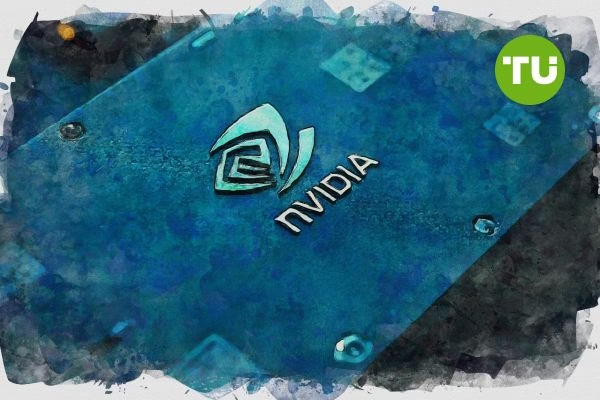Nvidia Insider Stock Sales Analysis: Unpacking Executive Moves Amidst the AI Boom
Estimated reading time: 7 minutes
Key Takeaways
- Nvidia’s phenomenal stock surge has intensified scrutiny on Nvidia insider stock sales analysis.
- Executive sales, including those by Jensen Huang, are often part of pre-planned 10b5-1 trading programs.
- Common reasons for selling include personal wealth diversification, tax obligations, and funding significant personal expenses.
- The impact of Nvidia executive stock sales on market perception is often interpreted as routine profit-taking rather than a bearish signal, given the company’s strong fundamentals.
- These sales are a small fraction of total shares and are not necessarily indicative of a peak in the AI boom or Nvidia’s valuation.
- Investors should consider overall company performance, industry trends, and competitive landscape alongside insider transaction data for a holistic view.
Table of contents
- Nvidia Insider Stock Sales Analysis: Unpacking Executive Moves Amidst the AI Boom
- Key Takeaways
- Introduction
- Understanding Insider Stock Sales
- The Latest Scoop: Jensen Huang’s Sales and More
- Deconstructing “Why Nvidia Insiders Are Selling Now”
- Assessing the “Impact of Nvidia Executive Stock Sales”
- Nvidia Stock Sell-Off Implications and the AI Boom
- Conclusion: A Balanced Perspective on Nvidia Insider Sales
- Frequently Asked Questions
Introduction
Nvidia has been on a phenomenal trajectory, with its stock price surging to unprecedented heights. This surge, primarily driven by its leadership in AI hardware and software, has positioned the company at the forefront of the AI boom, delivering staggering returns for investors. From its pivotal role in advanced graphics processing to its foundational contributions to artificial intelligence, Nvidia’s innovation has reshaped technological landscapes, setting new benchmarks for growth and market capitalization. The company’s GeForce RTX 40 series GPUs and comprehensive software platforms have cemented its dominant position in a rapidly expanding market.

This unprecedented growth, however, has naturally brought intense scrutiny to Nvidia insider stock sales analysis. When a company’s valuation reaches such dizzying heights, questions often arise about the motivations behind executive selling and the potential impact of Nvidia executive stock sales on market perception. Is it a sign of executives losing faith, or merely a prudent financial maneuver?
This blog post aims to provide an in-depth examination of what these sales truly signify. We’ll delve into the mechanics of insider trading, analyze recent high-profile transactions, and explore the common, legitimate reasons behind such sales. Our goal is to offer context and a balanced perspective, helping you understand whether these executive moves are cause for concern or simply a normal part of managing significant personal wealth in a booming market.
Understanding Insider Stock Sales
Before we dissect Nvidia’s specific situation, it’s crucial to grasp the fundamental concept of “insider stock sales.” These transactions occur when individuals closely associated with a company buy or sell shares of their own firm. This typically includes company executives (such as CEOs, CFOs, and other senior management), members of the board of directors, or major shareholders (individuals or entities owning more than 10% of a company’s outstanding stock).
It’s vital to clarify that, contrary to common misconception, these transactions are entirely legal. The key distinction lies in adherence to strict regulations designed to ensure transparency and prevent trading based on *material non-public information*. The very concept of insider trading as an illegal activity refers specifically to using privileged, undisclosed information to gain an unfair advantage in the market.
In the United States, U.S. securities law mandates that insiders report these transactions publicly. The primary mechanism for this disclosure is through **SEC Form 4 filings**. These forms must typically be filed with the U.S. Securities and Exchange Commission (SEC) within two business days of the transaction. This swift reporting makes the information publicly available for investors, analysts, and the general public to assess, providing a critical layer of transparency in the financial markets. Investors frequently monitor these filings as a potential signal about a company’s future prospects, though interpretation requires careful consideration of context.

The Latest Scoop: Jensen Huang’s Sales and More
The recent surge in Nvidia’s stock price has naturally brought significant attention to the trading activities of its top executives, particularly CEO Jensen Huang. Addressing the Jensen Huang stock sales latest news, it’s noteworthy that in June 2025, Huang filed a Form 144, outlining his plans to sell up to 600,000 shares of Nvidia stock. Initial tranches, specifically 150,000 shares, were executed in mid-June. This move, while substantial in volume, is a crucial data point in our broader Nvidia insider stock sales analysis.

Are other executives selling too? Huang’s sales are indeed part of a broader trend, with other Nvidia executives also selling substantial shares. For instance, SEAWELL A BROOKE sold over 18,000 shares on June 27, 2025, according to AltIndex and Nasdaq insider activity reports. These sales, along with others, contribute to the significant total disclosed by AIinvest.com, indicating a collective executive movement. Furthermore, Colette Kress, Nvidia’s Chief Financial Officer, sold nearly $7.8 million worth of stock earlier in 2025, as detailed in her SEC Form 4 filing. These examples illustrate that sales are occurring across various leadership levels, reflecting both individual financial strategies and the extraordinary rise in Nvidia’s market value, which has naturally presented executives with significant unrealized gains.
Crucially, many of these sales are conducted under pre-arranged **10b5-1 trading plans**. A 10b5-1 plan is a written plan adopted by an insider when they do not possess material non-public information. It sets out a predetermined schedule for buying or selling shares at a specific price or on a specific date. These plans are established in advance to provide an affirmative defense against insider trading allegations and avoid the appearance of trading on undisclosed information. This mechanism ensures that executives can manage their personal finances without constantly risking accusations of improper trading. Both AIinvest.com and another report from AIinvest.com highlight the prevalence and importance of these plans in understanding current executive sales at Nvidia. This detailed review forms a critical part of our Nvidia insider stock sales analysis, providing necessary context beyond mere headlines.
Deconstructing “Why Nvidia Insiders Are Selling Now”
The core question for many investors is: “why Nvidia insiders are selling now?” It’s a valid query, especially given the company’s spectacular performance. However, it’s essential to understand that several valid and common motivations exist for executives to sell company stock, motivations often unrelated to their long-term confidence in the firm.
Common Legitimate Reasons for Selling:
- Diversification of Personal Wealth: Executives typically have a significant portion of their wealth concentrated in company stock, often through equity compensation. After a dramatic appreciation, such as Nvidia’s recent surge, selling shares allows them to diversify their personal portfolios. This reduces financial risk by not having “all their eggs in one basket” and ensures a more balanced asset allocation. Both AIinvest.com and another AIinvest.com report emphasize diversification as a primary driver.
- Tax Planning and Obligations: Exercising stock options or the vesting of restricted stock units (RSUs) often triggers substantial tax liabilities. Insiders frequently sell a portion of these shares immediately to cover the taxes due on these compensation events. This is a common and necessary practice to manage the tax burden associated with executive compensation packages.
- Funding Personal Expenses or Investments: Like any individual, executives may sell shares to fund major personal expenditures, such as real estate purchases, children’s education, significant philanthropic donations, or other personal investments outside the company. These are legitimate life events that necessitate liquidity.
- Pre-scheduled Selling Plans (10b5-1 Plans): As highlighted previously, many Nvidia insider sales are taking place under these pre-arranged plans. These are standard, prudent mechanisms for insiders to execute sales systematically and reduce the risk of any perceived impropriety. They are set up months in advance, at a time when the insider does not possess non-public information, and then automatically execute trades based on predetermined criteria. This provides transparency and an affirmative defense against insider trading allegations. Again, AIinvest.com and another AIinvest.com article underscore the importance of these plans.

Routine vs. Potentially Concerning Selling Patterns:
It’s important to distinguish between what constitutes routine insider selling versus patterns that might raise red flags. Sales made under routine and disclosed programs, especially after periods of extraordinary gains like Nvidia’s, generally reflect prudent wealth management. These are less likely to indicate negative sentiment or forthcoming bad news for the company. On the other hand, abrupt, unscheduled, and large-volume selling that occurs suddenly, particularly ahead of negative company announcements or market downturns, might be more concerning. However, for Nvidia, the evidence largely points to the former scenario, as confirmed by AIinvest.com’s analysis, suggesting calculated financial decisions rather than a loss of confidence. This comprehensive view is crucial for a thorough Nvidia insider stock sales analysis.
Assessing the “Impact of Nvidia Executive Stock Sales”
Understanding the impact of Nvidia executive stock sales requires a nuanced interpretation of how the market perceives these transactions. Insider selling is often viewed through two primary lenses:
- Routine Profit-Taking: This is a common interpretation, especially after a significant increase in share price. When a stock has seen such extraordinary gains as Nvidia’s, executives, like any long-term investor, may simply be realizing a portion of their profits. This is a normal part of financial management and doesn’t necessarily reflect a negative outlook on the company’s future. This perspective is supported by analysis from sources like AIinvest.com and another article from AIinvest.com.
- Potential Bearish Signal: Occasionally, if the volume, frequency, or timing of sales appears unusual or deviates sharply from normal patterns, it might be interpreted as a bearish signal. This could suggest insiders foresee challenges or a downturn that the public is not yet aware of. However, in Nvidia’s case, the sales predominantly fall under pre-arranged plans and are proportional to the stock’s massive appreciation.
Contextualizing Nvidia’s Sales Volume:
It’s crucial to emphasize that the recent Nvidia insider sales, including Jensen Huang’s, constitute a relatively small fraction of the company’s total shares outstanding. While the dollar amounts are large, proportional to Nvidia’s multi-trillion-dollar market capitalization and the vast number of shares held by insiders, they represent a modest percentage. Furthermore, these sales are occurring within a market where institutional investors are largely maintaining strong confidence in Nvidia’s long-term prospects, continuing to hold or even increase their positions. This institutional support acts as a powerful counterbalance to executive sales, reinforcing the idea that the broader market remains bullish on Nvidia’s future, as highlighted by AIinvest.com.

Insider Buying vs. Insider Selling:
A key distinction in insider activity analysis is between buying and selling. Substantial insider *buying* tends to be a stronger bullish signal than insider *selling* is a bearish one. When insiders invest their own capital directly into the company’s stock, it often conveys a higher conviction in its future success and undervaluation. Insider selling, by contrast, can be driven by a broader range of personal financial factors, as discussed previously, which are often entirely unrelated to the company’s future performance. This distinction is vital for understanding the true impact of Nvidia executive stock sales on investment decisions.
Nvidia Stock Sell-Off Implications and the AI Boom
The executive stock sales at Nvidia naturally lead to a broader question: What are the Nvidia stock sell-off implications AI boom? Do these sales signal that Nvidia’s remarkable run, or even the broader AI boom, is nearing its peak? While some might interpret executive selling at all-time highs as a peak indicator, the context surrounding these transactions is paramount, suggesting a more balanced perspective.

Context of Robust Fundamentals:
It’s critical to remember that these sales have occurred amidst Nvidia’s record financial performance. The company reported a significant 69% year-over-year increase in Q1 2025 revenue, a testament to its continued operational strength. This explosive, sustained demand for AI hardware – particularly Nvidia’s high-performance GPUs – and robust institutional investor support continue to serve as strong positive indicators for the company’s health and future trajectory. This fundamental strength is a key counter-argument to the idea that insider sales are a bearish signal, as noted by AIinvest.com.
Strength of the AI Boom:
Furthermore, the AI boom itself – anchored by the critical demand for Nvidia’s processing units and software platforms – remains fundamentally strong. We are still in the early to mid-stages of widespread AI adoption across industries, meaning significant growth potential lies ahead. This is supported by continued analyst “Buy” ratings for Nvidia and the company’s ongoing commitment to product innovation and strategic development, as detailed by how AI is transforming businesses. Reports from AIinvest.com and another AIinvest.com article consistently point to the enduring strength of the AI market and Nvidia’s pivotal role within it.

Other Market Dynamics:
While geopolitical risks, regulatory scrutiny on AI regulation tech industry impact, and general market volatility are ever-present factors in the tech sector, Nvidia’s strong competitive moat and consistent growth trajectory currently overshadow these concerns. The company’s unique position in providing essential infrastructure for the AI revolution gives it a robust defense against short-term market fluctuations. Rather than signaling imminent trouble or a collapse of the AI boom, these sales more plausibly represent prudent financial planning by executives capitalizing on unprecedented gains. This nuanced perspective is crucial for understanding the true Nvidia stock sell-off implications AI boom.
Conclusion: A Balanced Perspective on Nvidia Insider Sales
In wrapping up our Nvidia insider stock sales analysis, it’s clear that the recent spike in executive stock sales—including those by CEO Jensen Huang and other key figures—should be viewed through a careful, nuanced lens. We’ve seen that these sales are largely pre-planned, often via legally sound 10b5-1 plans, representing reasonable wealth management strategies during a period of historic stock appreciation. Crucially, these transactions occur at a time when the company’s underlying fundamentals remain exceptionally robust, with strong revenue growth and an unyielding demand for its AI-enabling technologies, as consistently reported by AIinvest.com and other financial insights from AIinvest.com.
The evidence overwhelmingly points to these sales being driven by routine diversification and personal financial planning rather than indicating any lack of confidence by insiders in the company’s future prospects or performance. In Nvidia’s specific case, where the stock has multiplied in value many times over, it would be financially imprudent for executives *not* to diversify some of their vast wealth tied up in company shares, as corroborated by various financial analyses including those from AIinvest.com and another AIinvest.com publication.
For high-growth stocks like Nvidia, insider sales are only one piece of a complex investment puzzle. We urge investors to look beyond sensational headlines and consider a multitude of factors when evaluating stock performance and future prospects. These factors should include the company’s financial performance, broader industry trends (such as the continued strength and expansion of the AI market), the competitive landscape, and overall market dynamics, in addition to analyzing the impact of Nvidia executive stock sales. Making informed decisions based on a holistic, well-rounded assessment is always the most prudent approach.
Frequently Asked Questions
Q1: Are Nvidia insider stock sales illegal?
A: No, insider stock sales are entirely legal, provided they adhere to strict regulations such as reporting transactions via SEC Form 4 within two business days. Illegal insider trading involves using material non-public information for personal gain.
Q2: What is a 10b5-1 trading plan and why is it important for Nvidia’s sales?
A: A 10b5-1 plan is a pre-arranged, written plan adopted by an insider when they do not possess material non-public information. It sets a schedule for future stock transactions. For Nvidia, many executive sales are under these plans, indicating they are systematic, pre-scheduled moves for personal financial management rather than a reaction to immediate company news.
Q3: Do these sales mean Nvidia’s stock will go down or the AI boom is ending?
A: Not necessarily. While some interpret sales at highs as a bearish signal, in Nvidia’s case, the sales are a relatively small fraction of total shares and are likely driven by common reasons like diversification and tax planning after significant stock appreciation. The company’s fundamentals remain strong, and the overall AI boom shows continued robust growth.
Q4: Should I be concerned about Jensen Huang selling his shares?
A: Jensen Huang’s sales, while significant in dollar amount, are part of a pre-planned diversification strategy typical for executives whose wealth is heavily concentrated in company stock. It does not inherently signal a lack of confidence in Nvidia’s future, especially given the context of its strong performance and the pre-arranged nature of many of these transactions.






